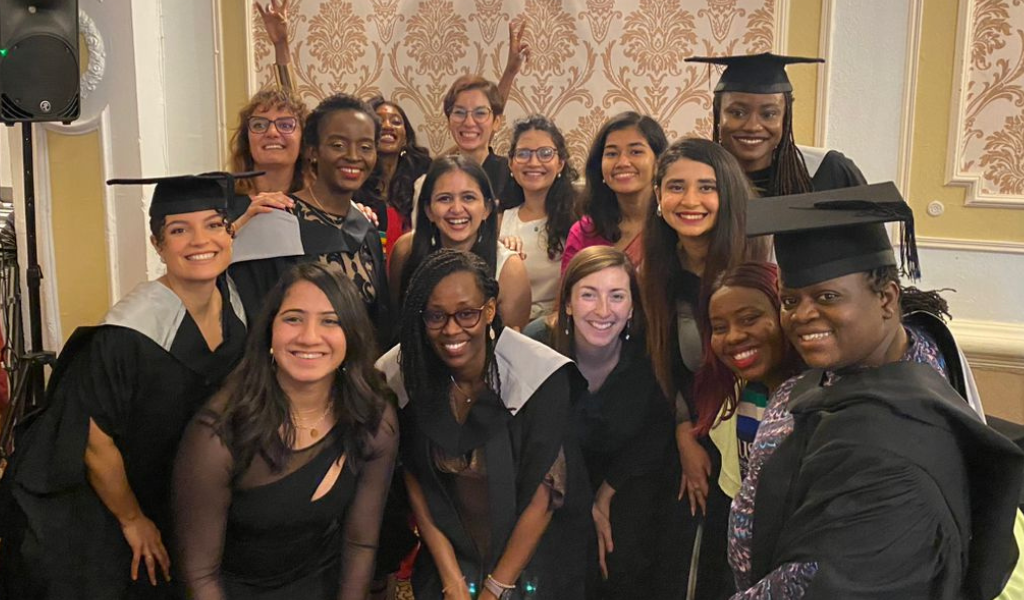The UK government’s 2025 Immigration White Paper titled ‘Restoring Control over the Immigration System’ proposes sweeping changes to the Skilled Worker (SW) visa route, raising salary thresholds (currently £38,700), removing discounts for shortage occupations, closing the social care visa route, increasing the Immigration Skills Charge, and limiting the Graduate visa to 18 months.

These changes, some of which are already being implemented, are of the latest in a long succession of anti-immigration reforms stretching back through the “hostile environment” era and Brexit‑era rollbacks. They disproportionately impact immigrant women by curtailing legal migration pathways, disrupting education-to-employment transitions, and restricting family reunification.
How will the proposed new immigration rules (White Paper) impact the future of women students in the UK? We argue that while these rules create steeper barriers for all students, they disproportionately target and disadvantage women students.
Feminised sectors shut out
Social care is a highly feminised sector with 79% women and 25% foreign workers (as of March 2024), which is low-paid and systemically undervalued. Between 2021 and 2023, two in ten graduate visa holders who switched to a Skilled Worker visa transitioned into a care worker role, suggesting care work as a relevant route to stability and longer-term stay in the UK. By removing the ‘shortage occupation discount’ the White Paper effectively excludes this sector from SW eligibility, shutting off critical legal routes for women students, migrant women in low-paid, essential roles. This not only entrenches the gendered and racialised devaluation of care work, but narrows pathways to settlement, pushing migrant women into informal work and heightening the risk of exploitation and trafficking.
The White Paper’s ‘skilled must mean skilled’ rhetoric is highly misleading. The proposed new rules exclude women not for a lack of skills, but due to the devaluation of care roles. This therefore makes migrant women working in care roles less likely to meet the salary thresholds while prioritising high-wage, male-dominated fields like tech and finance, reinforcing the ‘migrant division of labour‘.
Raising salary thresholds and blocking care roles favours white-collar, male-dominated sectors while erasing the vital labour of Black, Brown, and migrant women working in care. This disproportionately affects international women students from low-income countries studying social care, public health, or education. In contrast, male-dominated fields like STEM and finance remain eligible, reinforcing masculinised migration flows. This reshapes not just the UK labour market, but global migration patterns of who is welcomed and whose aspirations are stifled.
Leaving families behind – can women afford it?
The consequences of these exclusions extend beyond the workplace and into family life. Globally, women carry the lion’s share of unpaid care. Female students and researchers are more likely to migrate with dependents, which is now increasingly unfeasible. Following the previous ban on taught postgraduate students bringing dependents, rising salary thresholds, English language requirements, and a longer path to settlement, SW visas make family reunification nearly impossible for most, making the UK an inaccessible education destination.
Ultimately, the changes proposed by the White Paper will act as a significant deterrent for mature women students and researchers. As settlement allows for a lower salary threshold to bring in dependents (£29,000), it enables more flexible employment options that can better accommodate unpaid care responsibilities. However, the extension of the standard qualifying period from five to ten years has the potential to delay family reunification by an additional five years. On the other hand, if SW visa holders want to start families in the UK or become pregnant, they face increased vulnerability to pregnancy-related discrimination at work. Since 11% of pregnant women in the UK experience dismissal, redundancy, or feel forced to resign, SW visa holders risk not only unfair and discriminatory treatment but also losing their right to remain in the country.
Reducing the graduate visa from 24 to 18 months also disproportionately affects women and BAME students, who typically take longer to secure skilled employment. With only three months to switch employers if sponsorship ends, women, who are often balancing paid work with unpaid care, are at higher risk of visa loss. Even proposed fast-track indefinite leave to remain (ILR) for ‘highly skilled professionals’ favours elite, private sector occupations, which are masculinised and male dominated. Without gender-sensitive analysis, these policies will deepen disparities in post-study work outcomes, funnelling opportunities away from women.
Women at the heart of development — but not at the UK’s doorstep?
These domestic immigration restrictions stand in stark contrast to the UK’s global rhetoric on gender equality. In the UK’s International Women and Girls Strategy 2023–2030, the Foreign Secretary promises to put “women and girls at the heart of the FCDO’s work.” But can this promise stand when the UK’s 2025 Immigration White Paper proposes restrictions that prevent most international students from bringing dependents?
For many women — especially from the Global South — education is not just an opportunity, but a sacrifice balanced against caregiving. Globally, studies state that women perform 2.3 more hours of unpaid care work daily than men. UK policy now demands that they study while leaving children behind, facing higher financial costs and with fewer support structures.
This undermines scholarships designed to promote women’s leadership — like Chevening, and the Commonwealth Scholarship fund, which in 2022-2023 set a target of at least 57% female recipients — and which are already struggling for gender parity. It also restricts access to postgraduate education, limiting career prospects and potential contributions to global GDP and development that the UK is championing in the international development sphere.
As for UK academia, with just 66 Black women among 23,000 UK professors in 2024, these rules risk deepening exclusion and lack of diverse voices in academia and global research.
Conclusion
The 2025 Immigration White Paper raises critical questions about the future of women students in the UK. By targeting feminised sectors and undervaluing caregiving roles, they curtail legal migration pathways, disrupt education-to-employment transitions, and limit family reunification options. While the UK continues to claim to champion women’s empowerment abroad through scholarships and foreign policy commitments, its domestic immigration agenda tells a different story. How can the UK claim to empower women globally while systematically closing the doors to them at home?
In this scenario, we can only fear that the new immigration rules will potentially decrease the quality of future student cohorts. As IDS maintains its position as number one in the world for Development Studies, it is important to recognise that it does so notably due to its quality faculty, but also due to the diverse cohort it attracts. Our classrooms have gathered lives that have gone through revolutions, resistance, displacement, occupation, and others who have been mostly privileged by the systems they live in.

As a female-dominated cohort, and one of the last student cohorts able to bring in dependents, we formed an island of feminist support, not an “island of strangers”. Our diverse stories and backgrounds have made us, if anything, more human and capable of recognising that the knowledge produced from encounters with our peers is no less important than the knowledge coming from the books and academic articles we are required to read.





